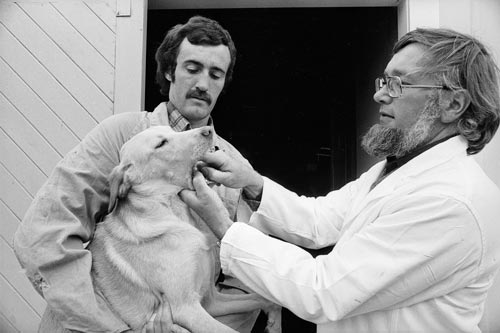
Hydatids is an unpleasant disease caused by a tapeworm that invades cattle, sheep and humans. Dogs ingest the worms in infected sheep or cattle offal, and later secrete eggs which infect other animals. The disease was probably well established in New Zealand before 1873, when it became notifiable. Between 1900 and 1925, annual human incidence reached seven per 100,000. In the late 1950s, there was a massive national effort to dose dogs, and by 2001 New Zealand was declared free of the disease. This infected dog is being given a purge pill.
Te whakamahi i tēnei tūemi
Alexander Turnbull Library, Dominion Post Collection (PAColl-7327)
Reference:
EP/1977/4816/27A
Permission of the Alexander Turnbull Library, National Library of New Zealand, Te Puna Mātauranga o Aotearoa, must be obtained before any re-use of this image.







Tāpiritia te tākupu hou